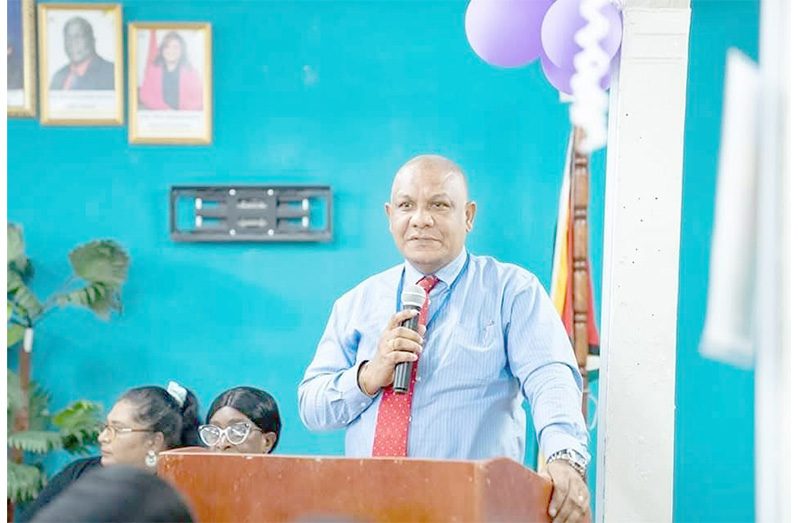CONTINUING his mission during Mental Health Awareness Month, 2025, which unfolds under the theme, “Turn Awareness into Action,” Dr Mark Constantine, Head of Psychological Services at the Ministry’s Mental Health Unit and Senior Clinical Psychologist, has highlighted several approaches to comprehensively understand and address mental health in the workplace.
The Senior Clinical Psychologist emphasised the importance of comprehending the intricate dynamics of individual behaviour within the workplace and the necessity of effectively navigating the daily environment in which one operates.
“When it comes to mental health in the workplace, I believe that it is something that we can all certainly attest to. Sometimes it is very difficult when it comes to working alongside people,” he said.
He further emphasised that individuals should acknowledge the inherent differences among people, which can present numerous challenges in their daily interactions.
According to him, it is essential for individuals to remain mindful of the dynamics of relationships and the complexities of mental health within the professional environment.
He further said, “One of the things that you should not do is, whatever it is that you’re dealing with outside of the workplace, you should not bring it inside of the workplace. Take nothing personally, always try to understand that work is work, and know when you leave there you have a personal life to go back to.
“Find proper and healthy coping mechanisms and, on a day-to-day basis, find what it is that helps you to relax yourself and to de-stress yourself, so that you can go back to work on the following day in a very rejuvenated mode.”
Furthermore, Dr Constantine explained that stress is an inherent aspect of life. However, he recommended that individuals who experience stress and recognise its effect on their mental health should take a break to address the issue before returning to work.
In discussing the importance of balancing work and personal commitments, Dr Constantine emphasised the necessity of being attentive to the signals your body sends and being aware of your feelings.
“You have to be very mindful of what your body is saying to you. We all feel what we feel, and only we know how we feel and why we feel it sometimes. It is all about mindfulness; create a balance when it comes to your work and your personal life, and let us remember the phrase that says, ‘a chain is only as strong as its weakest link.’ You do not want to be the weakest link in the chain at your workplace… always be mindful of others.”
Finally, Dr Constantine urged all employees to tackle their responsibilities with resilience, thoughtfulness, and mindfulness, emphasising the importance of their contributions to the meaningful development and progress of their workplace.
In a recent televised message from Dr Constantine through the Ministry of Health, the Mental Health Unit called on citizens to look beyond outdated misconceptions and take active steps to support mental well-being — both for themselves and others.
While leading the national charge, the Head of Psychological Services urged Guyanese to confront and dismantle the stigma that continues to shroud mental health issues in secrecy and shame.
According to him, “When it comes to mental health or mental illness, there is a lot of stigma that still exists,” Dr Constantine said. “One of the main reasons why is because there is simply a lot of misconception[s].”
He took aim at the long-standing myth that only “crazy” or “mad” people seek therapy or visit mental health facilities. Despite societal advancements, this harmful stereotype remains deeply rooted in many minds, preventing countless individuals from seeking the support they need.
“Mental illness has very little to do with people and their insanity,” he stressed, adding, “It does not just speak to your mental disposition; it also speaks to your physical disposition and your emotional disposition. And we have to eradicate the myth that it speaks to a person’s insanity.”



.jpg)








